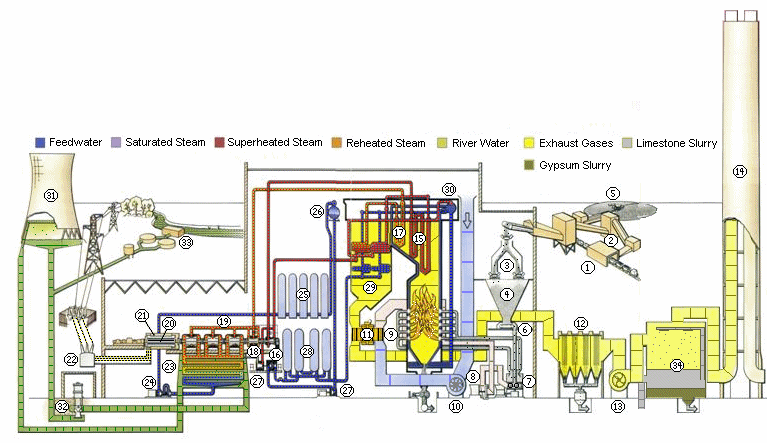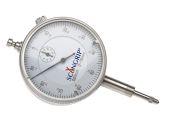Category Archives: Beneficiaries
HND Mechanical Engineering (Edexcel)
The Edexcel HND, Higher National Diploma in Mechanical Engineering by flexible open / distance learning provides you with a programme of study over a range of disciplines to help you develop skills to progress your career through employment in traditional mechanical industries.
The HND in Mechanical Engineering (Edexcel) consists of 16 HN modules:
Core modules:
- Analytical Methods for Engineers
- Mechanical Principles
- Engineering Science
- Project
Optional modules:
- Application of Pneumatics and Hydraulics
- Business Management Techniques
- Control Systems and Automation
- Engineering Applications
- Engineering Design
- Engineering Thermodynamics
- Fluid Mechanics
- Heat Transfer and Combustion
- Materials Engineering
- Mechatronic Systems Principles
- Plant Services
- Programmable Logic Controllers
- Safety Engineering
Modules offered may vary.
More specific details of module content of the Edexcel HND in Mechanical Engineering program by distance learning.
Enrolment is usually at any time throughout the year. Minimum entrance qualifications is a ONC, OND, C&G qualifications, apprenticeship in a related field.
Fill in an Application Form
HND Chemical Engineering (Edexcel)

The Edexcel HND, Higher National Diploma in Chemical Engineering by flexible open / distance learning provides you with a programme of study over a range of disciplines to help you develop skills to progress your career through employment in chemical process plant industries.
The HND in Chemical Engineering course will prepare you for a senior technical or supervisory position in the chemical and biochemical process industries, or for further study leading to a BEng or MEng degree. Chemical engineers take science out of the laboratory and into the real world. They turn raw materials into useful products through changing their properties or how they interact with each other. Chemical engineers can be involved in a hugely diverse range of work, from designing and building cleaner nuclear power plants to ensuring clean water supplies through creating catalytic reactions which destroy harmful organic matter in water.
This HND course will help you develop knowledge and skills that employers want, within an institution that is well known for its links with the chemical and engineering industries.
The HND in Chemical Engineering (Edexcel) consists of 16 HN modules:
Core modules:
- Analytical Methods for Engineers
- Fluid Mechanics
- Heat Transfer and Combustion
- Mass and Energy Balances
- Mass Transfer Operations
- Project
Optional modules:
- Analytical Instrumentation
- Business Management Techniques
- Chemical Engineering Unit Operations 1
- Chemical Engineering Unit Operations 2
- Control Systems and Automation
- Engineering Applications
- Engineering Design
- Engineering Thermodynamics
- Materials Engineering
- Measurement of Process Variables
- Safety Engineering
Modules offered may vary.
More specific details of module content of the Edexcel HND in Chemical Engineering program by distance learning.
Enrolment is usually at any time throughout the year. Minimum entrance qualifications is a ONC, OND, C&G qualifications, apprenticeship in a related field.
Fill in an Application Form
HNC Metals & Materials Engineering (Edexcel)
***I am afraid this Programme is NOT running at present***
The Edexcel HND, Higher National Certificate in Metals & Materials Engineering by flexible open / distance learning provides you with a programme of study over a range of disciplines to help you develop skills to progress your career through employment in traditional metalurgy industries.
The HNC in Metal & Materials Engineering (Edexcel) consists of 8 HN modules:
Core modules:
- Analytical Methods for Engineers
- Electrical & Electronic Principles
- Engineering Science
- Project
Optional modules:
- Application of Pneumatics and Hydraulics
- Business Management Techniques
- Combinational and Sequential Logic
- Control Systems and Automation
- Digital and Analogue Devices and Circuits
- Distributed Control Systems
- Electrical Machines
- Electrical Services
- Electrical Supply and Distribution Systems
- Electrical System Protection
- Electromagnetic Compatibility
- Electronics
- Engineering Applications
- Engineering Design
- Lighting
- Mechatronic Systems Principles
- Microprocessor Systems
- Operational Amplifiers
- Programmable Logic Controllers
- Safety Engineering
- Semiconductor Physical Electronics
Modules offered may vary.
More specific details of module content of the Edexcel HNC in Metal & Materials Engineering program by distance learning.
Enrolment is usually at any time throughout the year. Minimum entrance qualifications is a ONC, OND, C&G qualifications, apprenticeship in a related field.
Fill in an Application Form
HNC Process Engineering (Edexcel)

The Edexcel HNC, Higher National Certificate in Process Engineering by flexible open / distance learning provides you with a programme of study over a range of disciplines to help you develop skills to progress your career through employment in traditional process plant industries.
The HNC in Process Engineering (Edexcel) consists of 8 HN modules:
Core modules:
- Analytical Methods for Engineers
- Engineering Science
- Project
- Safety Engineering
Optional modules:
- Application of Pneumatics and Hydraulics
- Business Management Techniques
- Control Systems and Automation
- Distributed Control Systems
- Engineering Applications
- Engineering Design
- Engineering Thermodynamics
- Fluid Mechanics
- Heat Transfer and Combustion
- Instrumentation and Control Principles
- Materials Engineering
- Measurement of Process Variables
- Plant Services
Modules offered may vary.
More specific details of module content of the Edexcel HNC in Process Engineering program by distance learning.
Enrolment is usually at any time throughout the year. Minimum entrance qualifications is a ONC, OND, C&G qualifications, apprenticeship in a related field.
Fill in an Application Form
HNC Chemical Engineering (Edexcel)

The Edexcel HNC, Higher National Certificate in Chemical Engineering by flexible open / distance learning provides you with a programme of study over a range of disciplines to help you develop skills to progress your career through employment in traditional electrical and electronic industries.
The HNC in Chemical Engineering (Edexcel) consists of 8 HN modules:
Core modules:
- Analytical Methods for Engineers
- Fluid Mechanics
- Heat Transfer and Combustion
- Mass and Energy Balances
- Mass Transfer Operations
- Project
Optional modules:
- Analytical Instrumentation
- Business Management Techniques
- Chemical Engineering Unit Operations 1
- Chemical Engineering Unit Operations 2
- Control Systems and Automation
- Engineering Applications
- Engineering Design
- Engineering Thermodynamics
- Materials Engineering
- Measurement of Process Variables
- Safety Engineering
Modules offered may vary.
More specific details of module content of the Edexcel HNC in Chemical Engineering program by distance learning.
Enrolment is usually at any time throughout the year. Minimum entrance qualifications is a ONC, OND, C&G qualifications, apprenticeship in a related field.
Fill in an Application Form
HNC Instrumentation & Control (Edexcel)

The Edexcel HNC, Higher National Certificate in Instrumentation & Control Engineering by flexible open / distance learning provides you with a programme of study over a range of disciplines to help you develop skills to progress your career through employment in all types of engineering industries.
The HNC in Instrumentation & Control Engineering (Edexcel) consists of 8 HN modules:
Core modules:
- Analytical Methods for Engineers
- Engineering Science
- Instrumentation & Control Principles
- Project
Optional modules:
- Analytical Instrumentation
- Application of Pneumatics and Hydraulics
- Business Management Techniques
- Combinational and Sequential Logic
- Control Systems and Automation
- Digital and Analogue Devices and Circuits
- Distributed Control Systems
- Electromagnetic Compatibility
- Electronics
- Engineering Applications
- Engineering Design
- Microprocessor Systems
- Operational Amplifiers
- Programmable Logic Controllers
- Safety Engineering
Modules offered may vary.
More specific details of module content of the Edexcel HNC in Instrumentation & Control Engineering program by distance learning.
Enrolment is usually at any time throughout the year. Minimum entrance qualifications is a ONC, OND, C&G qualifications, apprenticeship in a related field.
Fill in an Application Form
HNC Petroleum Engineering (Edexcel)
***I am afraid this Programme is NOT running at present***
The Edexcel HNC, Higher National Certificate in Petroleum Engineering by flexible open / distance learning provides you with a programme of study over a range of disciplines to help you develop skills to progress your career through employment in traditional electrical and electronic industries.
The HNC in Petroleum Engineering (Edexcel) consists of 8 HN modules:
Core modules:
- Analytical Methods for Engineers
- Petroleum Production Engineering
- Petroleum Processing Engineering
- Project
Optional modules:
- Application of Pneumatics and Hydraulics
- Engineering Applications
- Distributed Control Systems
- Heat Transfer and Combustion
- Analytical Instrumentation
- Measurement of Process Variables
- Petroleum Facilities Emergency Shut Down Systems
- Mass Transfer Operations
- Business Management Techniques
- Engineering Applications
- Petroleum Refinery Engineering
- Engineering Design
- Instrumentation and Control Principles
- Control Systems and Automation
- Safety Engineering
Modules offered may vary.
More specific details of module content of the Edexcel HNC in Petroleum Engineering program by distance learning.
Enrolment is usually at any time throughout the year. Minimum entrance qualifications is a ONC, OND, C&G qualifications, apprenticeship in a related field.
Fill in an Application Form
HNC Mechanical Engineering (Edexcel)
The Edexcel HNC, Higher National Certificate in Mechanical Engineering by flexible open / distance learning provides you with a programme of study over a range of disciplines to help you develop skills to progress your career through employment in traditional mechanical industries.
The HNC in Mechanical Engineering (Edexcel) consists of 8 HN modules:
Core modules:
- Analytical Methods for Engineers
- Mechanical Principles
- Engineering Science
- Project
Optional modules:
- Application of Pneumatics and Hydraulics
- Business Management Techniques
- Control Systems and Automation
- Engineering Applications
- Engineering Design
- Engineering Thermodynamics
- Fluid Mechanics
- Heat Transfer and Combustion
- Materials Engineering
- Mechatronic Systems Principles
- Plant Services
- Programmable Logic Controllers
- Safety Engineering
Modules offered may vary.
More specific details of module content of the Edexcel HNC in Mechanical Engineering program by distance learning.
Enrolment is usually at any time throughout the year. Minimum entrance qualifications is a ONC, OND, C&G qualifications, apprenticeship in a related field.
Fill in an Application Form
PDA Renewable Energy Systems Modules
A typical PDA in Renewable Energy Systems program by Open / Distance learning – Course Contents
PDA – Renewable Energy Systems – G85G 15
Mandatory Units (6 credits required ):
Renewable Energy Systems: Overview of Energy Use
(Unit Code F1YL 34 – 2 Credits)
This Unit has been designed to provide candidates with knowledge and understanding of current issues and trends in the production and use of energy. The Unit will also allow candidates to gain an understanding of the need for sustainability and the adoption of renewable energy sources in order to limit global environmental damage. In all cases, arguments are primarily developed on the basis of quantitative data, though qualitative social factors are also considered. The Unit is largely theoretical in nature and does not consider the technology of renewable energy systems, and as such, the Unit may be considered applicable to disciplines out with Engineering.
On completion of the Unit the candidate should be able to:
- Describe global energy uses and trends
- Explain environmental effects associated with energy production and use
- Analyse the costs of different sources of energy
- Compare the advantages and disadvantages of alternative energy sources
- Explain the concepts of efficiency and energy saving in buildings, transportation and power generation.
Renewable Energy Systems: Technology
(Unit Code F1YN 34 – 2 credits)
This Unit has been designed to provide candidates with a knowledge and understanding of natural systems and processes that can be exploited as sources of renewable energy. Candidates will gain familiarity with the physics and engineering of the equipment used for extracting the available energy, and understand how energy transfer processes impact on efficiency and cost. A wide range of renewable energy sources are considered either individually or by reference to common or shared properties, and candidates will emerge with a level of technical knowledge that will permit them to undertake accurate quantitative comparisons between technologies, and the ability to calculate the potential or effectiveness of a particular system or solution. The way energy is used, particularly in buildings, is also considered and technological solutions that reduce energy waste are examined. The focus in the Unit is strongly on general principles and the candidate is not expected to design or construct complete systems, or assess in detail the operation of any specialist system. Specialist Renewable Energy Systems Units have been developed to allow candidates to study individual renewable energy technologies in greater depth than are possible in this Unit.
On completion of the Unit the candidate will be able to:
- Explain the operation and characteristics of electrical generator systems
- Explain the characteristics and optimal design of prime movers used in renewable energy applications
- Analyse the effectiveness of wind, wave, tidal and hydroelectric systems
- Evaluate energy transportation issues including hydrogen-based solutions
- Investigate the characteristics of photovoltaic (PV) system
- Analyse the heating requirements of buildings to reduce energy end-use.
Renewable Energy Systems: Microgeneration Systems
(Unit Code F1YK 34 – 1 credit)
This Unit has been designed to develop candidates’ knowledge and understanding of small power renewable energy generation systems suitable for domestic or small community development The Unit deals with all aspects of generating energy for the home or small business from planning, installation and running such systems. Candidates will have opportunities to develop a report on the energy conservation issues associated with using microgeneration on small scale ventures which can be their own home, business or community. Various technologies that can be used for this type of energy generation will be investigated mainly through using existing products available on the market but self designed systems can also be used. The financial and environmental impact of using microgeneration systems against using energy from the national grid will also be investigated.
On completion of the Unit the candidate should be able to:
- Analyse the results from an energy audit
- Select a microgeneration system for a particular project
- Evaluate the effects and benefits of microgeneration from a financial and environmental point of view.
Renewable Energy Systems: Wind Power
(Unit Code F1YR 35 – 1 credit)
Video on Wind Turbines Worth Watching !!!
This Unit has been designed to provide candidates with a good technical knowledge and understanding of the principles of operation of wind turbines. The Unit also highlights the importance of environmental and economic factors when planning the installation of a turbine or turbine group. The candidate will be encouraged to develop an objective approach to the planning of a wind power system by quantifying such factors as mean power output and variability using meteorological information appropriate to the site. The candidate will be expected to make scientifically competent recommendations based on this data. Installation effort, reliability and maintenance issues are also to be considered.
The content of the Unit is largely theoretical, but basic engineering principles will be reinforced through a practical investigation of operational turbines and/or the behaviour of models in the laboratory. The focus of the Unit is solely on large wind turbines.
On completion of the Unit the candidate will be able to:
- Analyse the response of different turbine and rotor designs to a variety of wind conditions
- Evaluate the economic performance and environmental impact of a turbine in a variety of locations
- Apply an operational understanding of wind turbines to a theoretical or practical problem context
PDA Project Management Modules
A typical PDA in Project Management program by open / distance learning – Course Contents
PDA – Project Management – G85G 15
Mandatory Units (4 credits required ):
Project Management: Project Justification and Planning
(Unit Code DV5H 35 – 2 credits)
This Unit is designed to provide the candidate with the knowledge and skills required to prepare a project proposal including an outline project plan. The resultant skills will enable the candidate to develop a business case for a project which demonstrates its fit with the organisation’s business objectives and its viability based on the appraisal of a number of possible options.
This Unit is intended for project managers working in the public, private or voluntary sectors. They will be experts in their field of operation but without any formal project management qualifications. This Unit is designed to provide the project managers with the knowledge and skills to seek and gain approval for a project proposal based on a well developed business case and outline project plan.
On completion of this Unit, the candidate should be able to:
- Produce the rationale for a project.
- Assess the viability of a project proposal.
Project Management: Managing the Implementation of a Project
(Unit Code DV5J 35 – 2 credits)
This Unit is designed to provide the candidate with the knowledge and skills required to run a project, which has been given approval to proceed to implementation. The resultant skills will enable the candidate to manage and control project resources including project relationships and the budget within the context of efficient management of risk and change.
This Unit is intended for project managers working in the public, private or voluntary sectors. They will be experts in their field of operation but without any formal project management qualifications. This Unit will enable project managers to manage the implementation of a planned and approved project and apply a process of controlled closure on its completion or early termination.
On completion of this Unit, the candidate should be able to:
- Manage project relationships
- Control a project budget
- Monitor and control a project
- Manage risks and issues
- Evaluate and close a project











